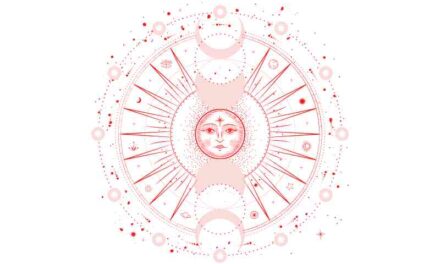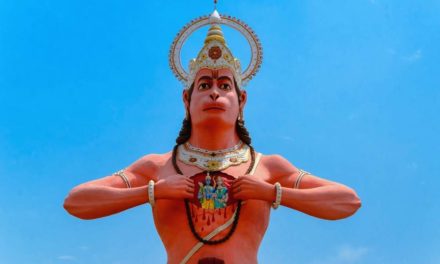Vedanta was developed with the intention of providing a foundation for theistic living by convincing people that the Self within is the real supreme being that one needs to realize.
What exactly is Vedanta?
It is generally agreed that Vedanta, which does not fall within any of the four paramparik margas (Bhakti Marga, Jnana Marga, karma Marga, and Raja marga)., is the most important school of thought in Hinduism
The philosophy of Vedanta may readily be incorporated into all four of them without any difficulty. “a guru is not worthy of entitled as acharya if didn’t learn the Vedanta Darshana,” which translates to “a guru has not mastered the Vedanta scriptures.”
This is a phrase that has been attributed to a number of ancient Vedantins, and it also demonstrates that a teacher is required to be a master of Vedanta in order for them to be able to call themselves acharyas, such as Adi Shankaracharya & Ramanujacharya.
What exactly is the point of studying Vedanta?
As I said before, people need to be converted to theism since in ancient times there were a number of atheistic theories that were swaying people’s opinions against the gods and the Vedas.
But Vedanta was initially developed to explain the theory of how God came into existence, how human beings were born, or in simpler terms, metaphysics. There are several monistic philosophies and non-monastic philosophies in Vedanta, which shows diversity in this darshan.
Vedanta was initially developed to explain the theory of how God came into existence. This Vedanta darshan focuses mostly on the three schools of thought known as Advaita,
The Advaita philosophy is said to have been established by “Lord Dakshinamurthy Shiva,” and it was further developed by a number of acharyas, such as Adi Shankara, and Ramana Maharshi, and Swami Vivekananda, in addition to a large number of other saints who are difficult to list.
Real knowledge, as referred to in Vedanta, is understood to be sat, or truth and truth are unchanging. The truth is unchangeable and unchanging all of the time. If it weren’t the case, it wouldn’t be the truth.
Therefore, when seen in the light of eternal truth, what is celebrated in the present scientific worldview as malleable knowledge that will evolve as more information becomes available is in reality nothing more than ignorance.
Vedanta provides a definition for both knowledge and ignorance in terms of their relationship to the passage of time, which sheds even more light on the distinction between the two. In the Bhagavad Gita, Krishna quotes those who have seen the truth and declares that the only thing that can be said to really exist is anything that is unchanging or everlasting.
Everything else is an illusion due to the fact that everything is fleeting; hence, it does not exist when seen from the viewpoint of eternity. He makes a direct connection between the actual and the illusionary aspects of this to the ego and the body.
Therefore, in order to acquire true knowledge, one must study that which is unchanging. It is not possible to have true knowledge if all you know is fleeting information. The philosophical treatise on Vedic knowledge known as the Vedanta Sutra was written by the author of the Vedas himself, Srila Vysadeva.
However, the world that we experience as humans does not consist of only physical and chemical processes. We have no direct experience of the way in which atoms and molecules build the foundation of our world.
The interactions that take place on the micro-level are not detectable by the human eye in any way. Human reality, on the other hand, is composed of our PERCEPTION of the world, and our perception of the world is composed of our mental processes in the form of thinking, feeling, and willingness, together with intelligent discrimination.
A science like the modern empirical one, which does not enable the human to understand the subtle, psychic processes of nature as they take place in the mind, is therefore insufficient to give us a complete picture of the world. This is because humans are not able to comprehend the subtle, psychic processes of nature.
The question now is: how can we learn about the eternal? What aspect of our experience should we focus our attention on since it will never change? Naturally, this is the awareness that resides inside, also known as the self or the observer.
It is important to emphasize that under the empiricist theory of knowledge, the subject of research is restricted to just those things that are not part of the self, namely matter. However, the matter is always going through transformations. Our bodies are always going through transitions, from childhood to adulthood to old age, and eventually death.
In this regard, Vedanta stands head and shoulders above all other epistemologies. Instead of focusing its pupil on the ever-changing world outside, Vedanta directs that student’s attention inward, to the one constant or everlasting subject matter that is within his grasp: the student’s own self.
The only consistent element in anyone’s sense of reality is the individual’s personal I-feeling, which may be thought of as the awareness that resides inside. Changes occur in everything else as well, including the body, the mind, the wife, the children, the house, the dog, society, and the rest.
If the knowledge that is gained by the student focuses solely on the two mutable aspects of nature, namely matter and the science to study matter, then it ignores the most important aspect of reality, which is consciousness or the observing faculty of existence. If this is the case, then the student’s knowledge is incomplete.
It’s unfortunate, but none of today’s educational institutions have even a single department that’s capable of or even willing to investigate consciousness from a scientific perspective. The whole body of information that is disseminated in today’s society is speculative and relative, and as a result, it adheres to the mode of ignorance.
It is possible that I am now sitting in front of a computer and typing this text; nevertheless, due to the fact that this is not a constant truth – for example, it will not be true in ten, twenty, or one hundred years from now – it is not possible to say that this is a genuine fact. The facts as they really are will never change. If something is real, it is true right now, it will be true tomorrow, and it will be true the day after that and forever after that.
If something that was thought to be true turns out to be false when more knowledge becomes available, this indicates that it was never true in the first place; further information will not make it true today. Therefore, having knowledge of fleeting matter does not fall under the same rubric as having knowledge of the eternal soul. The first concept is relative, whereas the second is absolute.
As a result, we can observe how the concepts of knowledge and ignorance are dealt with in Vedanta in accordance with their connection to the passage of time. The nature of matter, as well as our understanding of it, is subject to change throughout the course of time; yet, awareness is not contingent on the passage of time. Therefore, the only original item that should be considered worthy of study is the everlasting self that is inside the body.
The only way for us to genuinely experience this timeless and everlasting existence is to first connect with our very own selves, and then to link those selves with the Supreme Self, also known as God.
Otherwise, if we continue to be separated from our true selves and are just immersed in the ever-changing impulses of our bodies and minds, we will continue to be victims of time, which simply means that we shall perish very soon.
Sometimes in the books, a character would bravely announce, “I survived!” or “You saved my life.” However, these assertions are dishonest and deceptive since no one survives the events that take place in the novels.
Everyone will eventually perish, but having an understanding of one’s inner self may enable us to transcend time and become re-established in our true identities as immortal servants of the cosmic intelligence (God).
Time (Kala) is the only thing that can kill the human body and all the other material physical existences in this universe. The Cosmic intelligent energy is ever-changing and eternal, it was never born nor does it die, it is always existent only transforming from one state to another.





